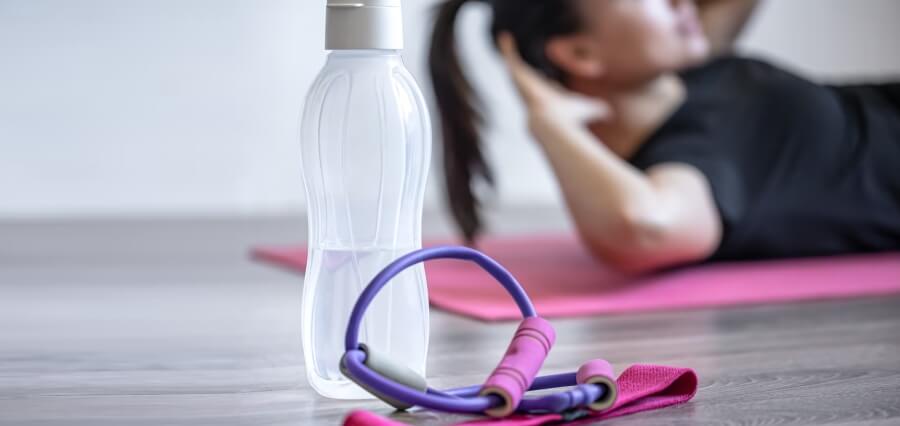When it comes to athletic performance, many factors, such as training, nutrition and recovery, come into play. However, one aspect that every so often gets overlooked is hydration. Hydration is vital in optimizing athletic performance, as even mild dehydration can significantly negatively affect physical and mental capabilities.
Let’s explore the importance of hydration and its impact on athletic performance.
The Importance of Hydration
Water is a necessity for our bodies to function properly. It serves as a medium for various physiological processes, including nutrient absorption, temperature regulation and waste removal. During workouts, the body loses water through sweating, leading to dehydration if not properly replenished.
Dehydration and Athletic Performance
Dehydration negatively affects athletic performance in several ways. Firstly, it impairs cardiovascular function, as the heart has to work harder to pump blood when there is a reduced blood volume due to dehydration. This leads to increased heart rate, decreased stroke volume, and compromised oxygen delivery to the working muscles.
Secondly, dehydration affects thermoregulation. Sweating is the body’s mechanism for cooling down during exercise. When dehydrated, the body’s ability to sweat efficiently is impaired, which can result in a rise in core body temperature. Elevated core body temperature can lead to heat exhaustion, fatigue and even heatstroke, which can be life-threatening.
Furthermore, dehydration affects muscular function. Water is essential for maintaining proper muscle cell function, and dehydration can lead to muscle cramps, weakness, and reduced endurance. It also impairs joint lubrication, which can result in joint pain and decreased range of motion.
Hydration Strategies for Athletes
To optimize athletic performance, athletes must adopt proper hydration strategies. Here are some guidelines to consider:
- Pre-Exercise Hydration: Start exercise well-hydrated by consuming fluids in the hours leading up to the activity. Aim to drink approximately 500 milliliters (17 ounces) of water 2-3 hours before exercise.
- During Exercise Hydration: It’s important to replace fluids lost through sweating. Drink water regularly, even if you are not thirsty. For intense or prolonged exercise lasting more than an hour, consider consuming sports drinks containing electrolytes to help regain the minerals lost through sweat.
- Post-Exercise Hydration: Rehydrate after exercise to restore fluid balance. Drink water or a recovery beverage that contains both carbohydrates and electrolytes to replenish glycogen stores and aid in rehydration.
- Monitoring Hydration Status: Athletes should monitor their hydration status by assessing urine color and volume. Pale yellow urine indicates proper hydration, while dark-colored urine suggests dehydration.
Hydration and Cognitive Function
In addition to the physical aspects of athletic performance, hydration plays a crucial role in cognitive function. According to the studies, even mild dehydration can lead to impaired cognitive performance, including reduced concentration, attention and decision-making abilities.
During exercise, the brain requires adequate hydration to function optimally. Dehydration can negatively affect cognitive processing speed, memory and overall mental acuity. Athletes may experience difficulties in making quick decisions, reacting to stimuli and maintaining focus, all of which are essential for peak performance.
Therefore, athletes must prioritize hydration for their physical well-being and mental sharpness during training and competition.
Individual Hydration Needs
It’s important to note that individual hydration needs can vary based on factors such as body size, exercise intensity, duration and environmental conditions. Athletes participating in endurance activities or exercising in hot and humid environments typically require more fluids to compensate for increased sweating and fluid loss.
Monitoring Fluid Intake
Athletes should develop strategies to monitor their fluid intake to ensure adequate hydration. Keeping a water bottle nearby during workouts and regularly sipping water can help maintain hydration. It’s also helpful to track fluid intake by measuring the volume of consumed fluids throughout the day.
Practical Tips for Staying Hydrated
Here are some practical tips to help athletes stay adequately hydrated:
- Drink water regularly throughout the day, not just during exercise.
- Consume fluids with meals and snacks to boost overall hydration.
- Opt for water as the primary source of hydration. Sports drinks can be helpful during intense or prolonged exercise, but water should be the go-to choice for daily hydration.
- Carry a reusable water bottle and make it a habit to drink from it frequently.
- Avoid excessive consumption of alcohol and caffeine, as they can contribute to dehydration.
- Incorporate hydrating foods (with high water content), such as fruits and vegetables (e.g., watermelon, cucumber), in your diet.
Conclusion
Hydration is critical to athletic performance, impacting physical and cognitive abilities. Proper hydration enhances cardiovascular function, thermoregulation, muscular performance and mental acuity. Athletes must prioritize hydration by adopting appropriate pre-, during and post-exercise hydration strategies. By staying well-hydrated, athletes can optimize their performance, reduce the risk of dehydration-related complications, and maintain overall health and well-being. Remember, drink up, stay hydrated and unleash your full athletic potential.
Read More Articles: Click Here










